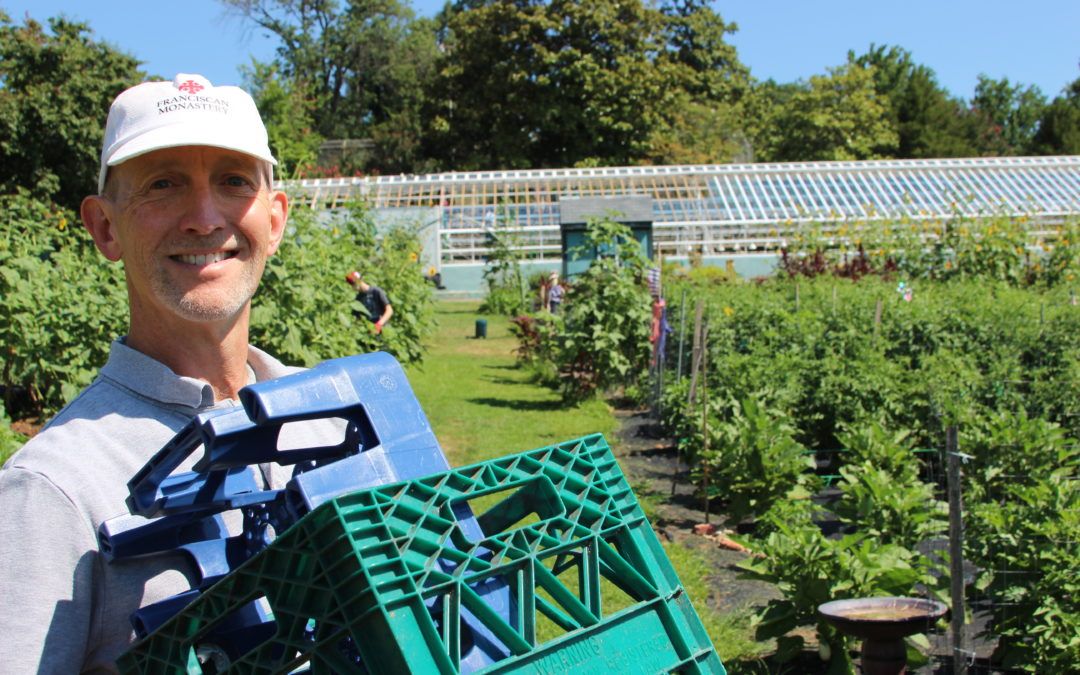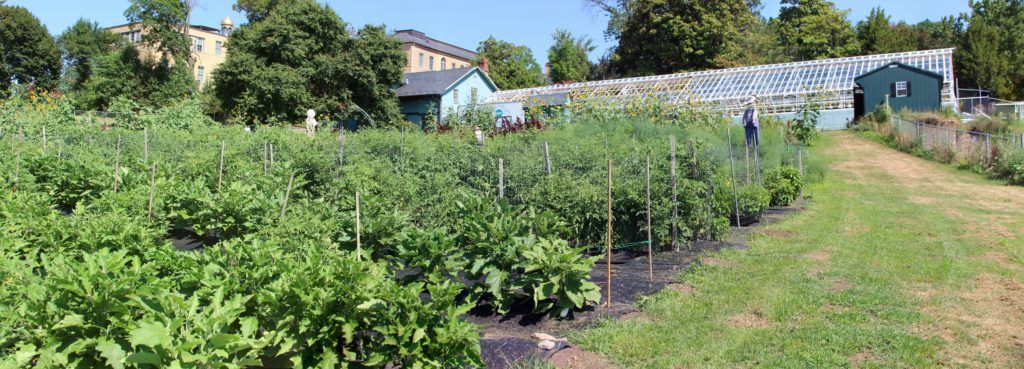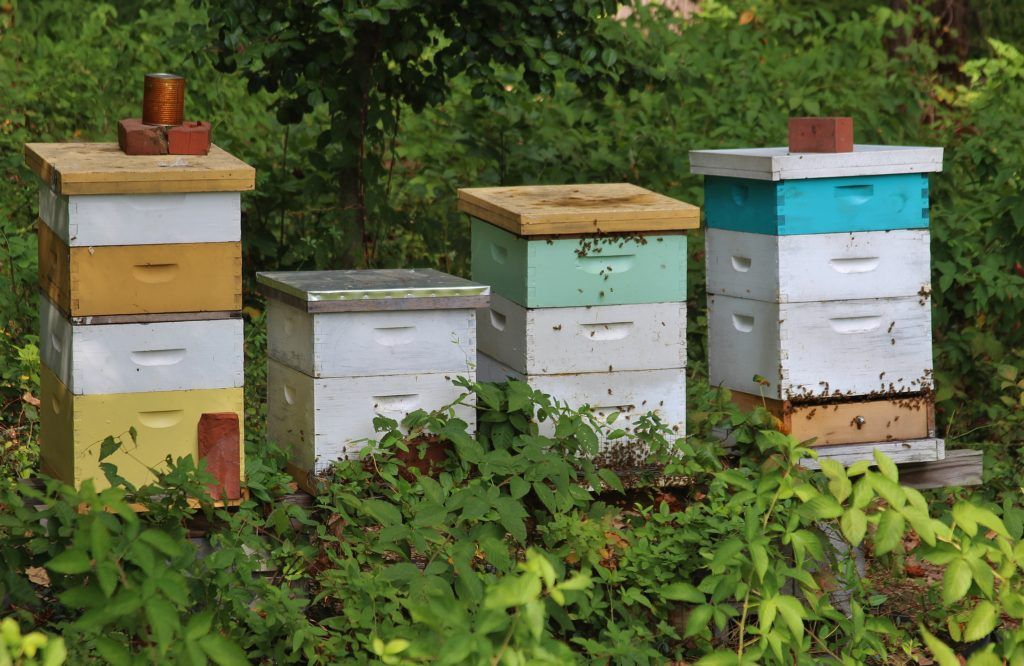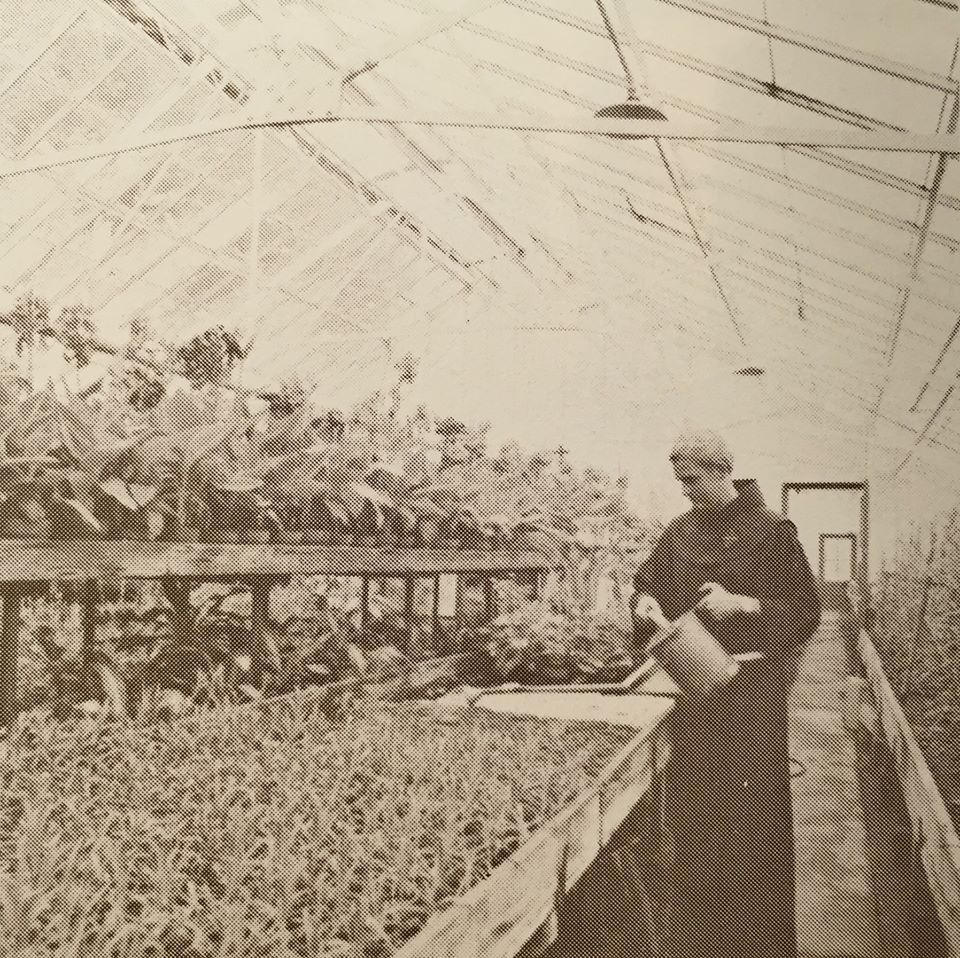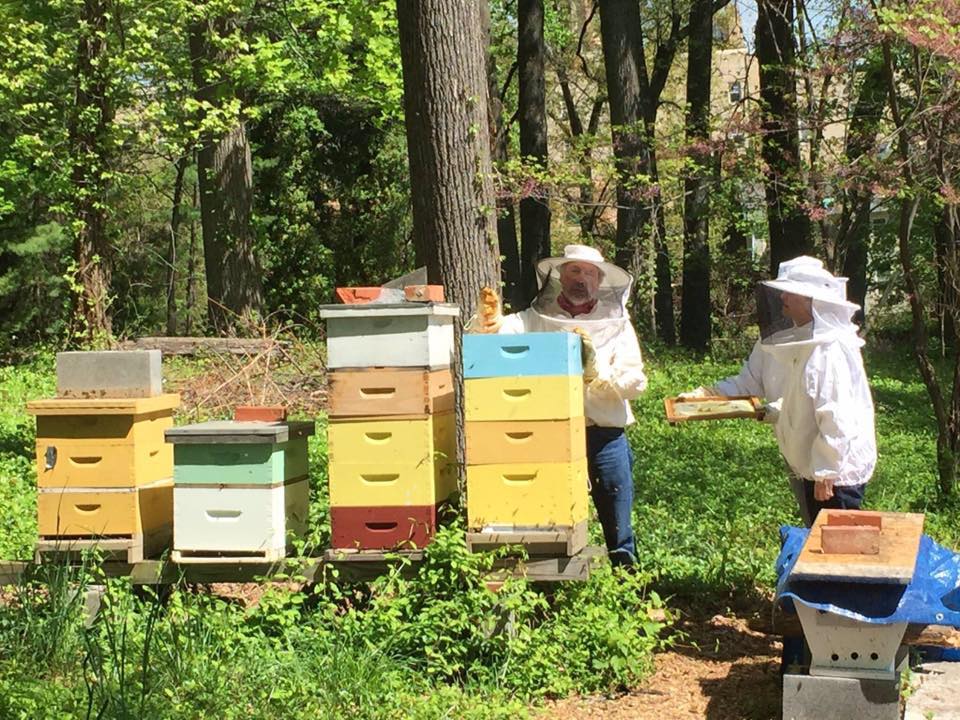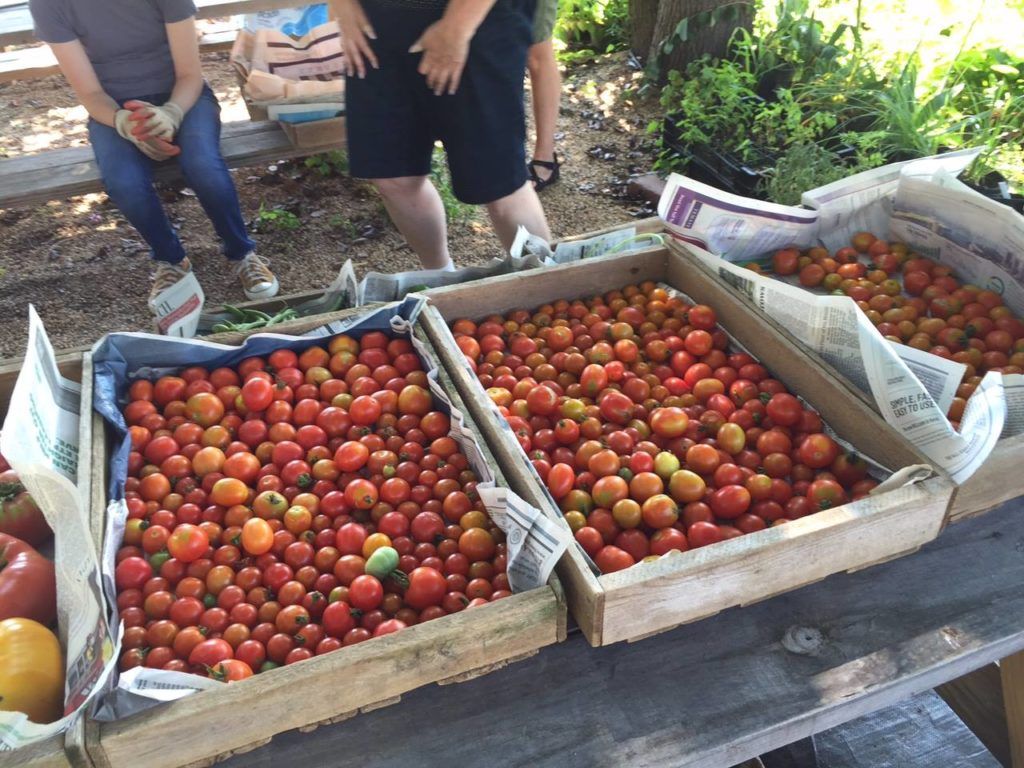Last November, in the role of secretary, I accompanied the Custos on his Canonical Visit to our friary in Washington. During the visit, an aspect that I did not suspect even existed came to light. As a member of the Custodial Commission for Justice, Peace and the Integrity of Creation, I was delighted to discover a hidden ecological gem.
Over the centuries religious orders were pioneers and masters in the cultivation of gardens and plants for medicinal use; they were known and commended for being expert bee keepers for the production of honey and wax for candles and other commodities. As Father Greg Friedman ofm points out in his article published in Holy Land Magazine, it is hardly surprising that the friars of the Custody in Washington in 1897 bought land and a small farm in Washington DC, and began to grow may varieties of vegetables and fruits.
The Franciscan friary in Quincy Street is well known, not only for the beautiful replicas of the Holy Places it contains, but also for the daily availability of the Friars in administering the Sacrament of Confession and reconciliation to the many faithful who visit the church.
However, it may be that few know of the urban agriculture development in the friary which has existed for many decades, indeed, before it became as fashionable as it is today. Father David Wathen ofm, who entered the friary in the 1980s, recalls that the agricultural cultivation by the community was in decline. There were fewer friars to do this kind of work. Br. Simon McKay ofm, a font of knowledge of the history of the friary noted: “at one time there were as many as 60 lay brothers working the friary and gardens”. In 1970 the greenhouse, once productive, was almost unused and the heating system disconnected. The barn of the farm, known as the “seed cellar”, so large as to house a horse and a carriage, was covered with plants and debris, so much so that it completely disappeared from sight and probably from memory.
Fortunately, not everything has been lost. A small association of volunteer laborers and gardeners was founded at the Franciscan friary, which began with great enthusiasm for the restoration of the agricultural farm, once so productive. The manager, Mr. Lou Manolis, found the greenhouse with an area of 120 by 30 feet (about 330 m2) in a dilapidated state. Repairs began by generous volunteers. The Amish community also contributed by producing wooden frames for the renewal of the interior of the green-house. Two temperature zones have been created. The first zone to facilitate the growth of vegetables to be planted; the second to cultivate and maintain tropical plants preserved in and around the friary during the summer months. The palms and bananas for the garden and friary were brought by the Friars from Egypt.
It is worthy to note that since 2014, this agricultural project has produced about 10,000 kilos of vegetables, equal to 10 tons!!
The products are used in the friary kitchen and also to feed the poor who seek help from the various religious houses in the area. The project has stimulated ecological interest by young and old alike. Today many groups from schools visit the Franciscan agricultural project. Surely this is very positive and encouraging signal for the future.
Another aspect of this marvelous agricultural-urban miracle is represented by the 32 bee hives that thrive in the gardens of the friary and produce 128 pounds (almost 60 kg) of honey. The interest in beekeeping has caused so much interest and attention that the friars have opened a small voluntary part-time school to teach the art of bee-keeping.
Certainly the gardening team still has a lot of work to do, because there are plans to repopulate the friary’s orchard and improve the care of the eight hectares of natural pasture land.
The whole ideology of the project is really inspiring, it shows what can be done for ecology even within a big city like Washington DC.
I would venture to say that these generous volunteers have much to teach many.
Well done say I !
Fr. John Luke Gregory, ofm
JPIC Commission of the Custody of the Holy Land

